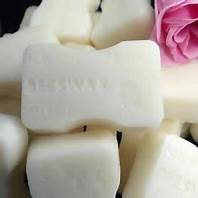Are You Using Your Hyaluronic Acid Serum Wrong?











Are You Using Your Hyaluronic Acid Serum Wrong?
Hyaluronic acid might sound a little scary – and about a million miles away from something that you should be smoothing onto your face.
But, in reality, it's a beauty weapon designed to plump your complexion, help you to nix fine lines and to hydrate the living hell out of parched skin.
Check the back of pretty much any half decent moisture-giving face mask or serum, and you'll likely see it listed as an ingredient.
So, do you need a formula that hones in on the active ingredient - or is its presence in your other potions enough? And if you're already using a hyaluronic acid wonder-serum, are you using it correctly in your routine?
To get some clarification, WH chatted to Dr. Natalia Spierings, who is a consultant dermatologist for Dermatica (the U.K.'s first online dermatology service) and consultant dermatologist Dr Anjali Mahto, to find out what hyaluronic acid can do for your skin – and if it is worth all the hype.
Hyaluronic acid: the benefits and best products, explained
What is hyaluronic acid?
'It is a natural compound that we already have in our bodies. The average human body weighs 70 kg and naturally contains 15 grams of hyaluronic acid, with the most significant amount being found in the skin,' explains Dr. Spierings.
'Hyaluronic acid is widely available, fully resorbable (meaning over time it becomes absorbed by the body) and biocompatible (meaning the body does not see it as a foreign object and generate an immune response to it).'
It works by binding itself to water and helps your skin to retain moisture. As such, it can make your complexion appear more plump and feel smoother.
What is hyaluronic acid used for?
Not just in the best moisturisers for dry skin. 'It is used in everything from cardiovascular implants to orthopaedic disorders,' says Dr. Spierings.
'The main property of hyaluronic acid, which makes it popular in skincare and aesthetic medicine, is its ability to bind a large number of water molecules, which improves hydration,' says Dr Spierings.
What does hyaluronic acid serum do for the skin?
You'd be hard pressed not to see hyaluronic acid in your skincare collection, but Dr. Spierings explains that while serums, moisturisers, and masks, containing hyaluronic acid are ubiquitous and widely available: 'So far there have been no randomised controlled studies confirming a positive, long-term smoothing effect on skin wrinkles from the topical application of hyaluronic acid in these cosmetic products.'
What are the benefits of hyaluronic acid?
While hyaluronic acid hasn't been proven to have long-term benefits for your complexion, when it is applied topically, it can offer you a quick fix.
Suffering from a hangover and need to hydrate your skin before you gulp down some water? Dr. Spierings says that hyaluronic serums can temporarily plump the outer layer of your skin: 'Topical formulations made of high molecular weight are used for the care of the skin around the eyes, face, neck and body and seemingly 'work' by forming a protective layer making the skin appear softer and feel smoother to the touch.'
Like a magic veil: 'Serums and creams will not penetrate into the deeper layers of the skin, they will only cover the stratum corneum (the outer layer). This does mean that they can maintain the moisture of the skin temporarily by drawing water between the cells of the top layer of the skin.'
Are you using hyaluronic acid wrong?
If you're already a fan of HA serum, great! But if you're confused about how you should be using hyaluronic acid within your skincare routine to see the best results, you're not alone. We spoke to Dr Anjali Mahto to help answer some of the most common questions around hyaluronic acid and its use.
Can you overuse hyaluronic acid?
'It is difficult to over-use hyaluronic acid but it is not a good stand-alone moisturising ingredient for all skin types,' explains Dr Mahto. 'Whilst use hyaluronic acid is good for oily or blemish-prone skin, it may not be enough hydration for those with normal or dry skin types.' If that rings true for you, make sure you're layering your serum with other hydrating products – like a balmy moisturiser.
Does hyaluronic acid dry out your skin?
While hyaluronic acid is designed to hydrate your skin – improper use could lead to your skin feeling even thirstier. Hyaluronic acid is designed to draw moisture into the skin but it needs to be locked in with a moisturiser so that it doesn't end up drawing moisture out of your skin – the opposite desired effect!
‘If you find that your skin is still dry despite using hyaluronic acid it is sensible to either switch to a heavier or more rich moisturiser containing ingredients such as ceramides and glycerin or layer a hyaluronic acid serum underneath your regular moisturiser for added hydration,’ says Dr Mahto.
Is hyaluronic acid good for ageing skin?
As a result of its hydrating properties, yes. If you're hoping to create a smoother canvas and you are starting to see the effects of collagen breakdown that starts to occur post 25, then it's a helpful tool to stick into your arsenal.
Is hyaluronic acid used in fillers?
Anyone who has used lip fillers to plump their pout should be familiar with H.A., as Dr. Spierings explains. 'Hyaluronic acid is the most commonly used cosmetic filler and it works in this capacity to fill and plump up the extracellular tissue space to add volume where it is perceptibly lacking.'
'Highly cross-linked molecules of hyaluronic acid are the most popular form of 'dermal filler' used in minimally invasive aesthetic medicine – to give volume to lips and add definition to cheekbones.'
Is it better to ingest hyaluronic acid than apply it topically?
Thinking of adding a hyaluronic acid pill to your daily dose of vits? You might want to think again. 'There is no evidence that taking it orally has a benefit on the skin, as the molecules get destroyed by stomach acid,' says Dr. Spierings.
Are there different types of hyaluronic acid?
'Yes,' says Dr. Spierings. 'They are distinguished by their fluidity, which varies based on the amount of cross-linking; this makes it either runnier or fluid versus being 'stiffer.' When used for cheek or jawline structure, the hyaluronic has to be tightly cross-linked and therefore 'stiff' to maintain its shape and provide volume to these areas.
Reference: Womwn's Health:Lydia House, Chloe Burcham
Articles-Latest
- Skin tags: Why they develop, and how to remove them
- So That’s Why Your Skin Gets Crepey As You Get Older
- Eye Infection from False Eyelashes
- Teeth stain removal and whitening solutions
- Benefits of collagen for skin
- Why vitamin E should be part of your skincare regime
- Can gray hair be reversed?
- Hair loss affects 1 in 10 women before the menopause – here’s how to treat it
- Conscious ageing and Black skin: What happens when Black does crack?
- Your skin color may affect how well a medication works for you — but the research is way behind
- The C word Cancer
- Astringents
- How does light therapy work? The science behind the popular skincare treatment
- The Most Offensive Fashion Police Criticisms of All Time
- Everything you need to know about lip filler migration, as told by the experts
- Pig semen and menstrual blood – how our ancestors perfected the art of seduction
- Everything you need to know about benzoyl peroxide
- We've bleached, relaxed, and damaged our hair to make ourselves look more white
- Will this be the year that facial filler is cancelled?
- Shock of the old: 10 painful and poisonous beauty treatments
Cosmetic ingredients
LOGIN
Who's On Line
We have 96 guests and no members online
Articles-Most Read
- Home
- White Bees Wax
- Leucidal
- Cosmetic Preservatives A-Z
- Caprylyl Glycol
- Cosmetics Unmasked - How Safe Are Colorants?
- Cosmetics Unmasked - Choosing Ingredients
- Cosmetics Unmasked - Colorants And Fragrances
- EcoSilk
- Toxic Beauty - Who's Looking At Cosmetics?
- Cosmetics Unmasked - Fragrances
- Microbes and Cosmetics
- Chemicals Lingering In The Environment
- Microbes and Safety Standards
- Yellow Bees Wax
- Potassium Sorbate
- Toxic Beauty - Hazardous To Your Health
- What's Happening in the USA - Cosmetic Regulations - Toxic Beauty
- Synthetics In Cosmetics - The Industry Fights Back
- Fresh Goat's Milk Soap
- Active Ingredients
- Cosmetics Unmasked - Listing Cosmetics
- Toxic Beauty - Cocktails and Low Doses
- Natural Waxes A-Z
- Natural Butters A-Z



